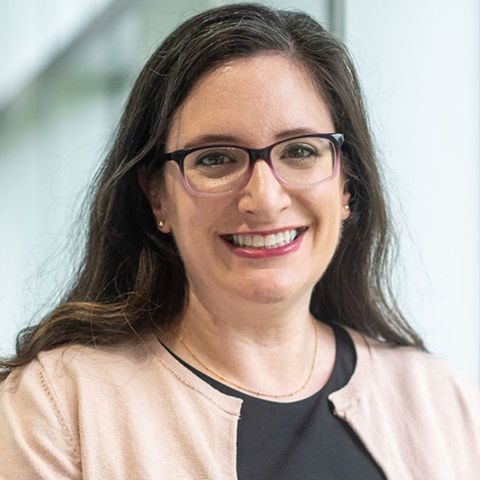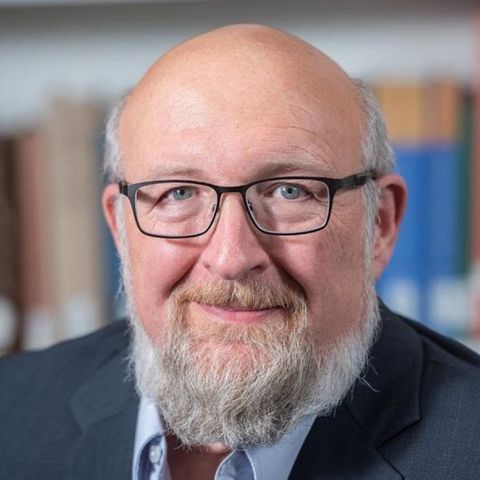Online Doctor of Ministry
Cultivate the tools necessary for lifelong theological and sociological reflection and to better serve your community as a religious leader in our complex, pluralist world.
Our Doctor of Ministry (DMin) can be done fully online with the exception of two weekend intensives over the course of the program. The DMin equips religious leaders working in ministry settings with the knowledge to respond to today’s challenges.
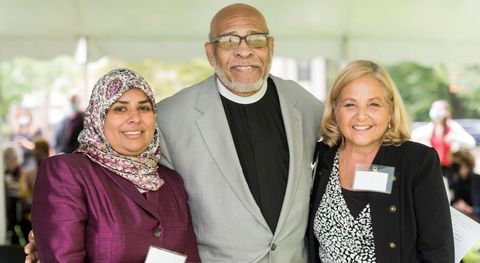
The DMin emphasizes reflective ministry, that is, ministry grounded in practical theology and an understanding of its social context. You’ll engage in interdisciplinary, interreligious learning through a blend of mostly online coursework and some in-person experiences and build a community of peers–religious leaders from diverse backgrounds–who challenge you to think creatively and critically as you explore the social and cultural dynamics impacting religious life and organizations in the 21st century.
Program Structure
The Doctor of Ministry (DMin) is a 36-credit advanced professional degree program designed for experienced ministry professionals who want to enhance their expertise with new skills to better respond to contemporary challenges and nurture leadership in service to their communities.
The DMin is a mostly online program that combines the flexibility of online learning with formative face-to-face experiences and culminates in a written project that explores an area of ministry related to each student’s vocational setting, or calling, and generates new knowledge for the broader practice of ministry.
Our DMin program offers the following tracks:
- Chaplaincy
- Ecology and Religion: Leadership for Life on Earth
- Africana and Black Church Leadership
- Interreligious Leadership
- Civic Interreligious Leadership
- Personalized: Tailored to individual interests in collaboration with an advisor
View Program Curriculum
4 Colleague Seminar Courses (12 credits)
Seminar I: The Changing American Religious Landscape
Explore the social and contextual challenges within American religious life through readings, guest presentations, and field trips. You’ll offer creative solutions to local congregations and reflect on your own belief system and tradition’s theological framework.
Seminar II: Exploring and Understanding the Local Religious ContextExplore contextual and organizational realities and their theological significance through personal and professional sharing and the reflective practice of ministry. You’ll also build field research tools and reflect theologically on insights to produce analytical and theological essays.
Seminar III: Transformative Leadership and PracticeDeepen your ability to think, imagine, and evaluate contextually through differentiated instruction for individual students to gain tools that are core elements of religious leadership and excellence, including mastery of the practice of action-reflection.
Seminar IV: Action Research Methods for Religious LeadersPrepare and share a literature review in your anticipated project area, using the basics of action research design and evaluating the theological foundations of your project venture. You’ll produce, present, and defend your Ministry Project Proposal by the end of the Seminar.
6 Electives (18 credits):
Electives courses will draw from existing MAIRS and MAC course offerings aligned with each DMin student’s chosen track or areas of interest.
2 Project Writing Courses (6 credits)
DMin Project
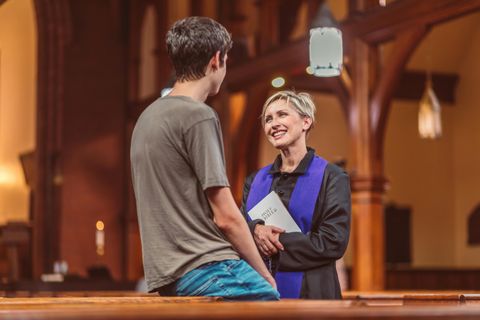
Learn Through Experience
As a DMin student, you’ll complete a ministry project that analyzes the religious and social dimensions of real-world contexts and enables you to propose new approaches to religious leadership tailored to your specific area of ministry, chaplaincy, vocational setting, or calling.
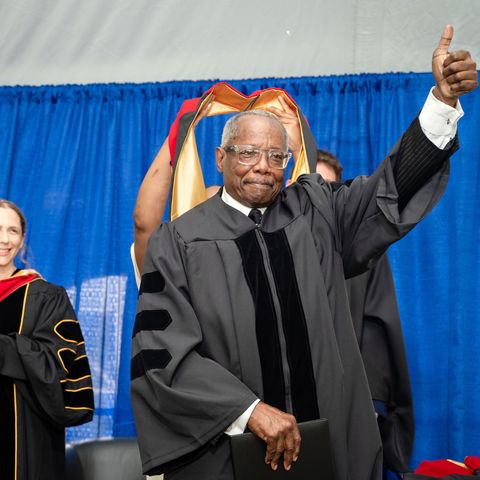
Who Thrives Here
You’ll join leaders from diverse religious backgrounds and ministry settings – such as denominational agencies, religious orders, chaplaincies, congregations, educational institutions, and faith-based social service agencies – to deepen your capacity to serve as a religious leader.
What You Can Do With This Degree
Doctor of Ministry Career Paths
Serve as a Clergy Leader
Lead Faith & Community Groups
Start a Non-Profit
Teach at a University or School
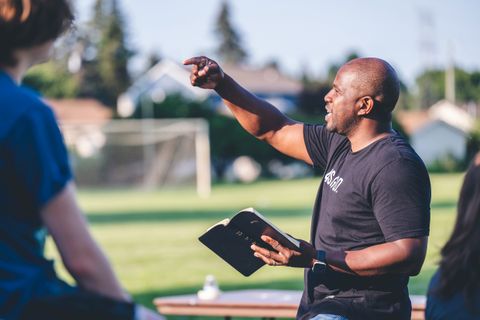
Learning Through Shared Wisdom
Taught by Scholar-Practitioners. Enriched by Peer Discussions.
Learn from professors with decades of experience leading organizations across religious traditions and thoughtful discussions with your multifaith peers. You’ll explore contemporary issues and emerging trends in ministry using the latest resources and insights from scholar-practitioners and interfaith peer conversations to compare and analyze the topics and practices.
Meet Our Program’s Co-Directors
Admission FAQs
When is the application deadline?
Applications for the Doctor of Ministry program and all supporting materials should be submitted to the Admissions Office no later than July 10 for the fall semester.
What level of experience is required to apply?
The DMin is open to students with significant ministry experience—at least three years—who have earned a Master of Divinity degree at an ATS-accredited seminary, or its educational equivalent, or a master’s degree in a related field from an accredited institution.
What are the work requirements during the program?
As an MDiv student, you are required to continue working in your leadership position in your ministry or chaplaincy setting throughout the program. The ministry setting must be located in the United States or in service of the US military.
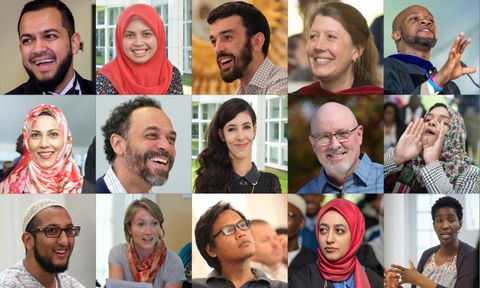
Are you ready to make a difference?
Take the next step.
Learn more about Hartford International University for Religion & Peace.

